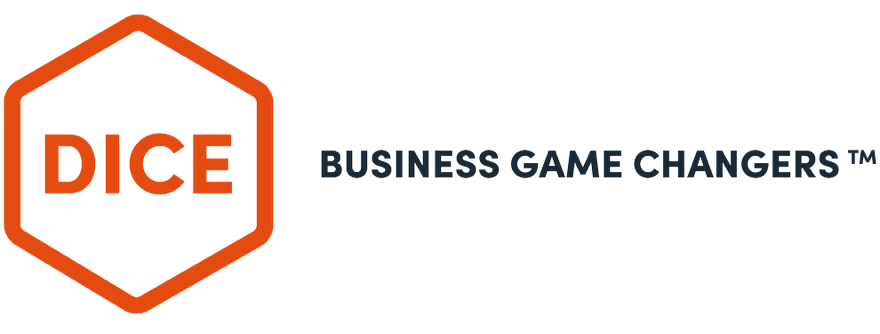Call us on: 01244 478692
Communicating effectively as a leader
One important aspect of leadership is authority— exert too much and people feel like they are being treated like a child, but if you do not project enough authority, it can come across as lacking confidence.
Managers have to strike the right balance between leading and directing the work that needs to be done whilst giving freedom and flexibility so that employees feel they have autonomy within their roles. So as a people manager, how do you strike that balance? The answer lies in how you communicate with your team members and remember there is no ‘one size fits all’ approach.
Good communication skills are beneficial for everyone at work, however as you progress into leadership roles, more specific skills and awareness is needed to help address diverse personalities and often more complicated messaging associated with things like organisational change.
Whenever we communicate, we are doing so consciously and unconsciously from our own identities, perceptions and biases about ourselves and those we are communicating with. We can easily forget this and just assume that communication is a direct exchange of information from one person to another. But how you communicate is highly nuanced by these things, as is how the recipient receives the message. They will have their own cultural, social, psychological, and emotional factors at play. All of this makes communication a messy leadership concept!
For example, we have all known the motivation-zapping feeling of being patronised or treated like a child. Or perhaps as a leader, it can sometimes feel like you are managing a group of disruptive school children rather than a team of responsible adults.
But there is a way to reduce the messiness which can lead to more productive and effective communication exchanges by managing and modifying our own behaviour. This is a concept called Transactional Analysis or TA. Dr Eric Berne famously wrote a book called ‘Games People Play’ where he defined three ‘ego states’ which he defined as a system of feelings accompanied by a related set of behaviour patterns.’ The three ego states are Parent, Adult and Child, and he recognised that everyone has all three of these states available to them, but which state we are in during an interaction can depend on different factors.
These factors could be how we have been conditioned to act or react from childhood, any past traumas which now cause us to act in a certain way during interactions or situations, how the other person we are interacting with is treating us, and what ego state they are in when speaking to us.
The child state can show up in two different ways – a free child that is creative, spontaneous and playful, or the adaptive child, which conforms to please and be liked but then can also be rebellious when faced with something they don’t like. The child state is built on reinforcements from childhood – maybe you were someone who did as they were told and followed the rules, or maybe you were the youngest sibling of the family who was carefree and always got away with things – you get the idea!
The parent has two states too – a critical and controlling parent and a nurturing parent. Berne believed that our experiences during our first five years of life contributed to the parent ego state – the thinking patterns and behaviours parents and other authority figures taught us. The critical parent disapproves in a harsh and possibly aggressive way, whereas the nurturing parent tries to take over a situation in more of a rescuing way, trying to soothe others which can be very inappropriate when talking to other adults rather than children.
Interacting with someone from the state of child or parent mode is often a default or unconscious reaction that is used, and it takes conscious awareness to be able to bring ourselves back into adult mode and interact from that place instead.
TA believes that adult to adult communication leads to the most effective and healthy communication and improve our relationships with others. The adult state interacts with people and its environment in the here and now, not from past conditioning or how other people have told them to be. This state is more open, more rational, and less quick to make harsh judgments on a situation or person. When communication takes place from the adult state, we are more likely to be respectful, make compromises, listen fully to others, and have more healthy social interactions.
Whenever we interact with others, transactions take place between our different ego states. Here’s an example of a conversation between a manager and an employee and their different ego states outlined in brackets:
Manager: What time is the train due (Adult)
Employee: It’s five minutes late (Adult)
Manager: That’s just typical! (Critical Parent)
Employee: Yes, they always seem to be late, and they never give any warning (Critical Parent)
Manager: Whilst we have some time I need to let you know that I checked over your report and it is full of spelling mistakes, you should have run the spell-check (Critical Parent)
Employee: Oh, I am sorry, it won’t happen again (Adaptive Child)
Manager: I can hear the train arriving (Adult)
Employee: That’s good, we won’t be too late (Adult)
Manager: Let me help you with your suitcase (Nurturing Child)
Employee: Oh thank you so much! (Free Child)
Manager: Oh wow they’re upgrading us to first class (Free Child)
Employee: Fantastic! (Free Child)
Staying in Adult/Adult state as a people leader requires both immense self-awareness as well as an understanding and awareness of the people you are leading. Transactional Analysis is just one of the many methodologies we teach on our leadership programme and support our clients with. Get in touch to find out more.




